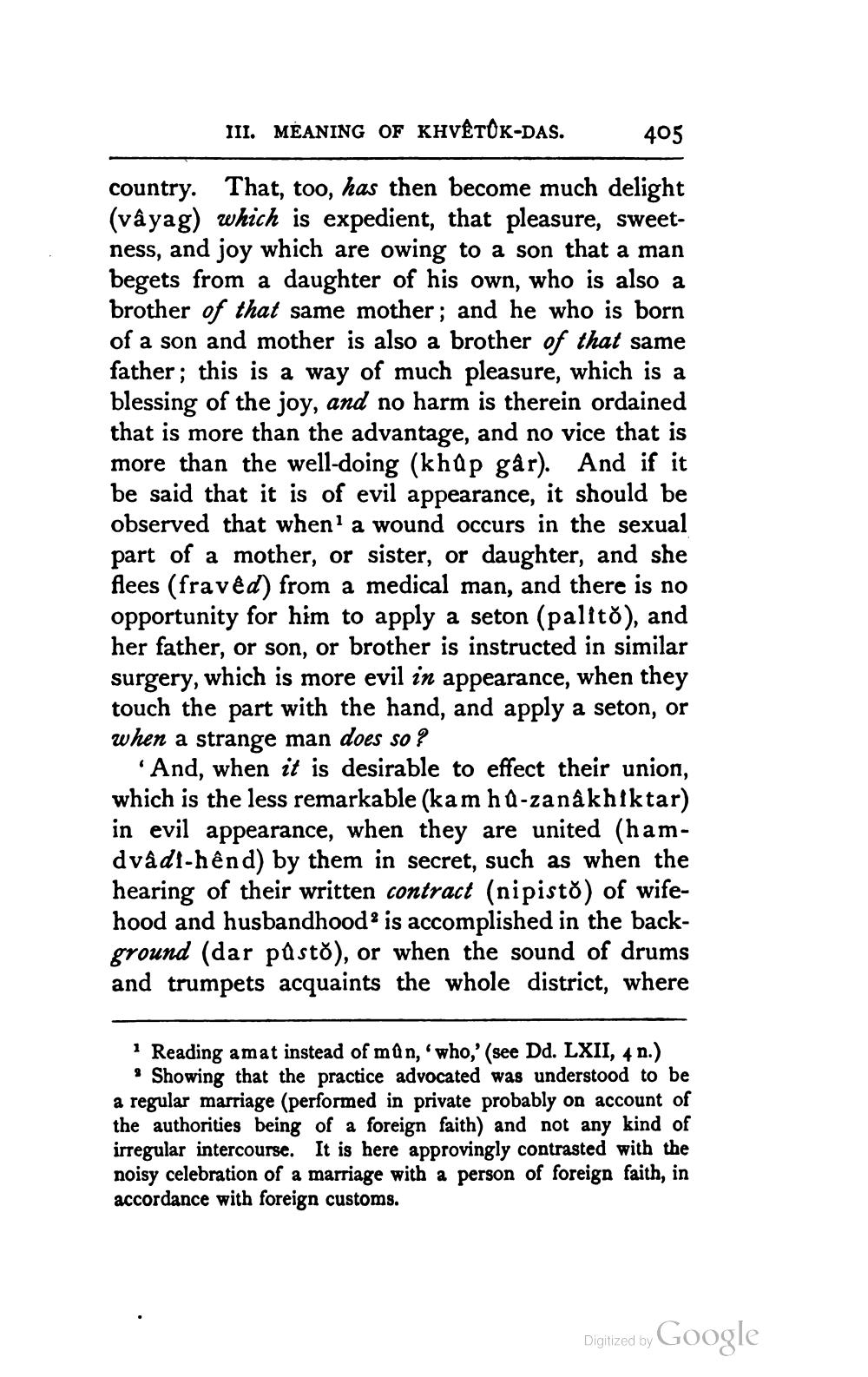________________
III. MEANING OF KHVỆTOK-DAS.
405
country. That, too, has then become much delight (vâyag) which is expedient, that pleasure, sweetness, and joy which are owing to a son that a man begets from a daughter of his own, who is also a brother of that same mother; and he who is born of a son and mother is also a brother of that same father; this is a way of much pleasure, which is a blessing of the joy, and no harm is therein ordained that is more than the advantage, and no vice that is more than the well-doing (khập går). And if it be said that it is of evil appearance, it should be observed that when a wound occurs in the sexual part of a mother, or sister, or daughter, and she flees (fravêd) from a medical man, and there is no opportunity for him to apply a seton (palito), and her father, or son, or brother is instructed in similar surgery, which is more evil in appearance, when they touch the part with the hand, and apply a seton, or when a strange man does so ?
And, when it is desirable to effect their union, which is the less remarkable (kam hd-zanâkhiktar) in evil appearance, when they are united (hamdvadi-hênd) by them in secret, such as when the hearing of their written contract (nipistö) of wifehood and husbandhood is accomplished in the background (dar pa stě), or when the sound of drums and trumpets acquaints the whole district, where
* Reading amat instead of mûn, who,' (see Dd. LXII, 4 n.)
Showing that the practice advocated was understood to be a regular marriage (performed in private probably on account of the authorities being of a foreign faith) and not any kind of irregular intercourse. It is here approvingly contrasted with the noisy celebration of a marriage with a person of foreign faith, in accordance with foreign customs.
Digitized by Google




